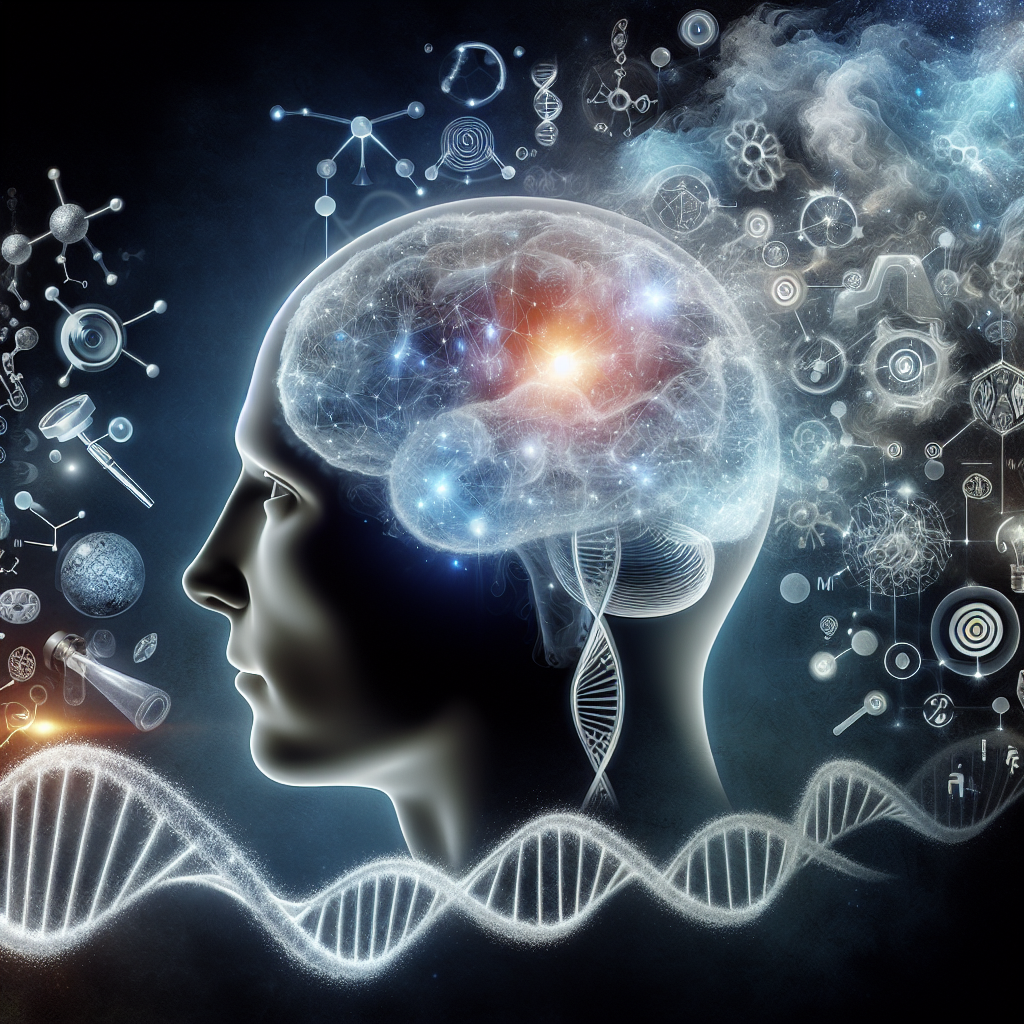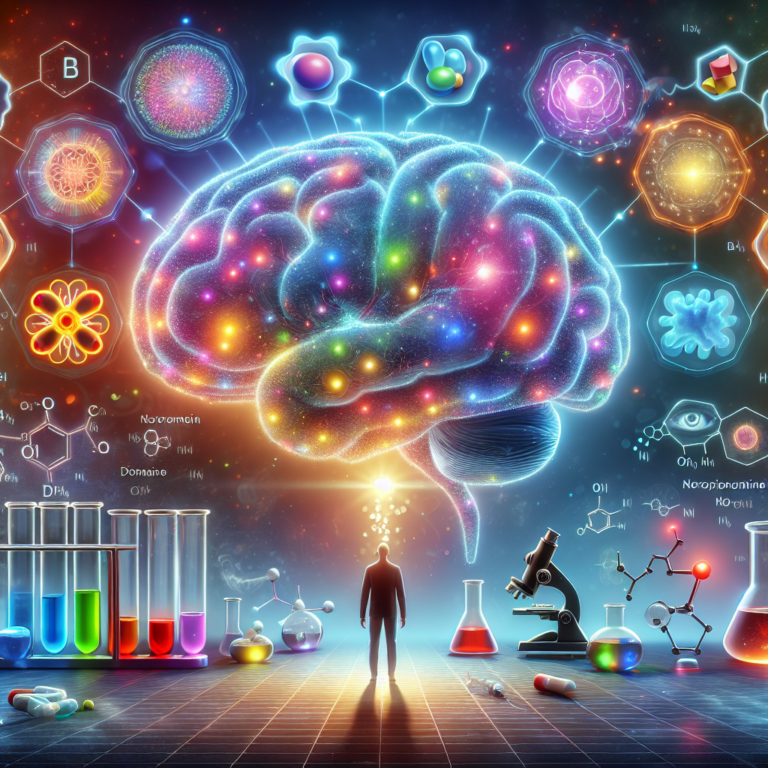
Introduction
Have you ever wondered why some people feel better after taking a pill that contains no active ingredient? Or why patients undergoing sham surgeries report significant relief from symptoms? Delving into "The Power of Belief: Exploring the Science Behind the Placebo Effect" unveils a fascinating paradox of human psychology and medical science. The placebo effect isn’t just a mere trick of the mind; it’s a genuine phenomenon that illustrates the remarkable influence our beliefs have on our health and well-being.
Research indicates that roughly 30% to 40% of patients may experience improvement in symptoms due to a placebo, shedding light on how powerful belief can be in shaping our experiences. In this article, we’ll explore the nuances of the placebo effect, understand its scientific underpinnings, and examine compelling case studies that highlight its implications in modern medicine. Through this exploration, we hope to empower you with knowledge and insights to harness "The Power of Belief" in your own life.
Understanding the Placebo Effect
Before diving into real-world applications, it’s essential to understand what the placebo effect is and how it works.
What is the Placebo Effect?
The placebo effect occurs when a patient experiences real changes in their health or well-being after receiving a treatment with no therapeutic effect. This can range from pills, injections, or even surgeries that are not intended to have any active medicinal properties. The positive changes can arise through various mechanisms, including expectations, conditioning, and the overall experience of care.
The crux of "The Power of Belief: Exploring the Science Behind the Placebo Effect" is how our perceptions of treatment can catalyze real biological changes in the body. Beliefs and expectations can influence everything from pain perception to inflammatory responses, ultimately affecting how we feel.
How Does the Placebo Effect Work?
Several mechanisms have been proposed to explain the placebo effect, including:
Expectancy: The belief that a treatment will work can lead to genuine physiological changes. For example, if a patient believes that a medication will relieve pain, their brain may release endorphins, which are natural painkillers.
Conditioning: Previous experiences with effective treatments can create a learned response where the mere act of taking a pill triggers an automatic healing response.
- Neurobiological Factors: Advanced neuroimaging studies show that placebos can activate real neurological pathways, releasing dopamine and other neurotransmitters that play roles in mood and pain management.
A Brief History of Placebo Research
The concept of the placebo effect isn’t new. Historical records show that it has been acknowledged for centuries. In the 18th century, Scottish physician John Haygarth demonstrated the effectiveness of placebo treatments through his experiments with artificial powders. The modern era of placebo research began in the mid-20th century, leading to more structured clinical trials that distinguished between active treatments and placebos.
Case Studies Illustrating the Power of Belief
The understanding of "The Power of Belief: Exploring the Science Behind the Placebo Effect" comes alive through remarkable studies and real-world instances. Here are several compelling case studies that illustrate its profound effects:
Case Study 1: The Placebo Surgery
In a groundbreaking study reported in 2002 by Dr. Francesco Benedetti, patients suffering from osteoarthritis of the knee underwent a sham surgery. Participants received incisions and anesthesia but did not receive the actual surgical intervention. Surprisingly, a significant percentage reported considerable pain relief post-procedure.
Analysis: This study highlights the clinical relevance of belief in surgical contexts, revealing how the mere perception of receiving treatment can yield substantial benefits.
Case Study 2: The Effect of Sugar Pills on Depression
A meta-analysis published in the Journal of the American Medical Association found that approximately 30% of patients with moderate to severe depression reported improvement after receiving a placebo instead of actual antidepressants.
Analysis: This case underscores the role of belief in mental health treatment, suggesting that the act of seeking help and expecting relief can facilitate real changes in mood and emotional well-being.
Case Study 3: The Power of Expectation in Pain Management
A study conducted by researchers at the University of California, Los Angeles showed that participants who were told they were receiving a powerful pain reliever experienced a 45% reduction in pain after receiving a placebo labeled as an active drug.
Analysis: It reinforces the idea that our expectations can significantly modulate pain perception, showcasing the clinical utility of the placebo effect in pain management strategies.
Case Study 4: Placebo in Parkinson’s Disease
In research presented in the New England Journal of Medicine, Parkinson’s patients who were administered a placebo reported motor improvements similar to those observed with actual dopaminergic treatment. Neuroimaging revealed activation in key areas of the brain associated with motor control.
Analysis: This finding establishes that belief and expectation can trigger neurochemical changes akin to actual medication, emphasizing the interplay between psyche and physiology.
Case Study 5: The Role of Care and Attention
A 2010 study demonstrated that patients who received empathetic care from their providers experienced more significant improvement when given a placebo than those who did not have a supportive interaction.
Analysis: This highlights the importance of the healthcare environment and provider rapport in facilitating the placebo effect, suggesting that holistic care approaches can optimize treatment outcomes.
The Neuroscience Behind Placebos
Understanding "The Power of Belief: Exploring the Science Behind the Placebo Effect" requires an exploration of its underpinning neuroscience.
Neurotransmitters and Brain Activation
Research has identified that placebos can lead to the activation of various neurotransmitter systems, particularly endorphins and dopamine. This activation not only induces feelings of happiness but can also modulate pain levels. Advanced imaging techniques like fMRI have illustrated how brain regions associated with anticipation and reward are engaged when a patient believes they are receiving effective treatment.
Genetic Factors
Emerging research suggests that genetics might influence an individual’s susceptibility to the placebo effect. Variations in specific genes, particularly those involved in the dopamine system, may dictate how individuals respond to placebo treatments. This insight opens doors for personalized medicine, aligning treatments with a patient’s unique genetic profile.
The Role of Conditioning
The classic conditioning response illustrates how past experiences can shape current perceptions. If an individual has previously benefited from medication, even the sight or taste of a similar placebo can elicit a genuine therapeutic response. This anticipatory response underscores the potential for behavior modification therapies that utilize conditioning principles.
Practical Applications of the Placebo Effect
Understanding "The Power of Belief: Exploring the Science Behind the Placebo Effect" can have profound implications for individuals and healthcare providers alike.
Harnessing Placebo in Clinical Practice
Expectations Matter: Healthcare practitioners can enhance the effectiveness of treatments by managing patient expectations. For instance, framing a treatment with optimism can prepare the mind for a positive response.
Creating a Supportive Environment: A warm and empathetic healthcare setting can stimulate positive emotions, potentially enhancing placebo responses.
Encouraging Active Participation: Engaging patients in their treatment plans can foster a greater belief in the healing process, leading to improved outcomes.
- Integrating Mind-Body Practices: The inclusion of mind-body interventions like meditation, yoga, or cognitive behavioral therapy can augment the placebo effect by enhancing the patient’s belief in recovery.
Personal Growth and the Power of Belief
On an individual level, understanding "The Power of Belief: Exploring the Science Behind the Placebo Effect" can empower personal narratives:
Mindset Matters: Cultivating a positive mindset can influence overall well-being. Embracing affirmations and visualizations can enhance one’s belief in personal abilities and lead to improved outcomes in various life areas.
Challenging Negative Beliefs: Identifying and reframing limiting beliefs can unlock potential. Just as positive beliefs can lead to healing, negative ones can lead to disillusionment and stagnation.
- Peer Accountability: Surrounding oneself with supportive friends and family can reinforce positive beliefs and enhance resilience.
Conclusion
The exploration of "The Power of Belief: Exploring the Science Behind the Placebo Effect" reveals profound insights into the human experience. It’s clear that belief is not just a passive state; it is an active force that can shape our reality and well-being. From the nuances of neural pathways to the tangible implications for clinical practice, acknowledging the power of belief opens avenues for healing, personal growth, and a deeper understanding of human psychology.
As you navigate through life, remember that your beliefs shape your experiences. Cultivate positivity, foster supportive relationships, and remain open to the transformative power of your belief system. This journey towards understanding the placebo effect can empower you not just as a patient, but also as an architect of your health and happiness.
FAQs
1. What exactly is the placebo effect?
The placebo effect is when a patient experiences a measurable improvement in health after receiving a treatment that is inactive or has no therapeutic effect, thanks to their beliefs and expectations.
2. Can the placebo effect work for everyone?
While many individuals experience the placebo effect, its strength can vary based on personal beliefs, past experiences, and the context of treatment.
3. Does the placebo effect have limitations?
Yes, the placebo effect is not a substitute for effective medical treatment and cannot resolve all health issues. Its effectiveness can also wane over time or in the presence of severe conditions.
4. How can understanding the placebo effect benefit patients?
Patients can leverage the power of belief by cultivating positive expectations and engaging in supportive environments that optimize their treatment outcomes.
5. Are there ethical concerns surrounding the placebo effect?
Yes, ethical considerations arise when using placebos in clinical practice, especially regarding informed consent. Healthcare providers must navigate these complexities while prioritizing patient care and transparency.
The journey into "The Power of Belief: Exploring the Science Behind the Placebo Effect" opens vast dimensions not just in medicine, but in personal empowerment and belief shaping. Whether you’re a healthcare professional or an individual seeker of wellness, the science reveals compelling truths worth embracing.















